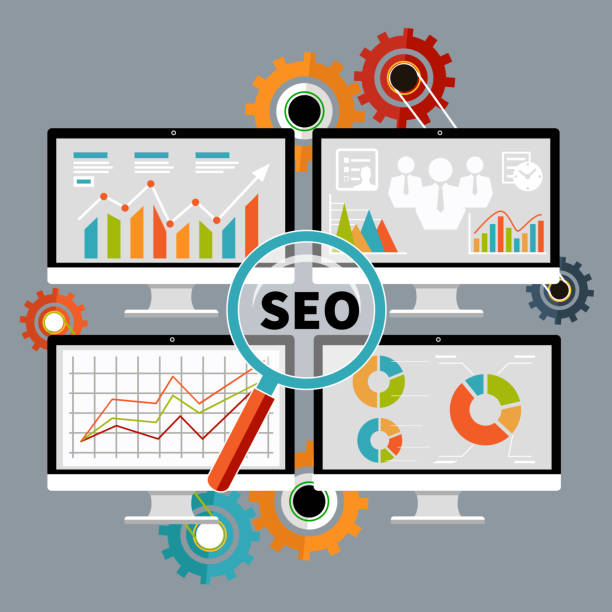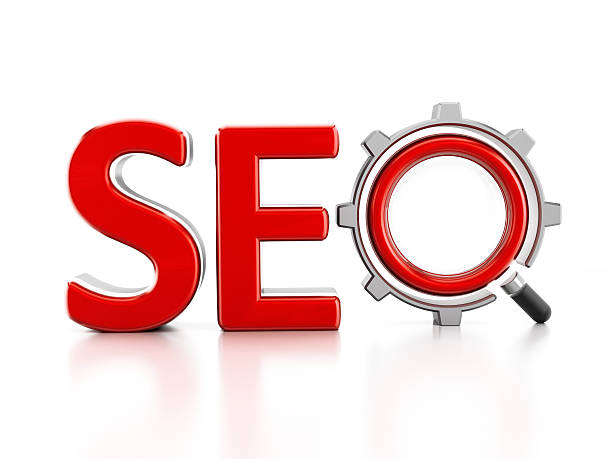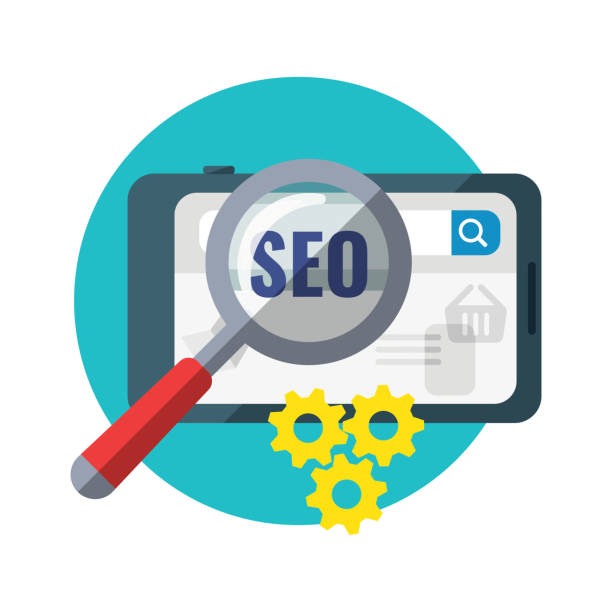What is SEO and why is it important?

What is SEO and why is it important?
#SEO (Search Engine Optimization) is an acronym for Search Engine Optimization and refers to a set of activities performed to improve a website’s ranking in search engine results like Google, Bing, and Yahoo.
The main goal of SEO is to increase website visibility and traffic through organic (unpaid) search results.
In today’s world, where most users rely on search engines to find information, products, and services, SEO plays a vital role in the success of businesses.
The importance of SEO is notable for the following reasons:
- Increased Website Traffic: Higher rankings in search results lead to increased incoming website traffic.
- Greater Credibility and Trust: Websites that rank high in search results are generally recognized as more credible and trustworthy sources.
- High Return on Investment (ROI): Compared to other digital marketing methods, SEO can offer a higher return on investment.
- Competitiveness: In today’s competitive world, SEO helps businesses compete in the online market and gain a larger market share.
- Better Customer Understanding: By analyzing SEO data, valuable information about customer behavior and needs can be obtained, and marketing strategies can be optimized.
In summary, SEO is an essential investment for any business that wants to succeed in the digital world.
By optimizing a website for search engines, one can increase website traffic, strengthen brand credibility, and boost sales.
Don’t have a corporate website yet and are missing out on online opportunities? With professional corporate website design by Rasawweb,
✅ Double your business’s credibility
✅ Attract new customers
⚡ Free consultation for your corporate website!
Basic Principles of SEO: Familiarity with Key Concepts

Basic Principles of SEO: Familiarity with Key Concepts
To better understand SEO, familiarity with its key concepts is essential:
- Keywords: Words and phrases that users employ for searching on search engines.
Identifying and targeting appropriate keywords is one of the most critical steps in SEO.
To identify suitable keywords, you can use keyword analysis tools such as Ahrefs or Semrush. - On-Page SEO: Optimizing elements that exist within the website, such as titles, meta descriptions, content, images, and internal links.
- Off-Page SEO: Optimizing elements that exist outside the website, such as link building, social media presence, and branding.
- Link Building: The process of acquiring links from other websites to your own website.
Links are considered a vote of confidence from other websites to your website and can improve your website’s ranking in search results. - User Experience (UX): Ease of website use, loading speed, attractive design, and useful content all impact user experience.
Search engines place great importance on user experience, and websites that provide a better user experience achieve higher rankings. - Content: High-quality, valuable, and relevant content to target keywords is one of the most important ranking factors in search engines.
Understanding these key concepts is the first step to starting SEO activities.
By mastering these concepts, you can formulate an effective SEO strategy for your website and improve your website’s ranking in search results.
Keyword Research: Uncovering Hidden Opportunities

Keyword Research: Uncovering Hidden Opportunities
Keyword research is the process of identifying words and phrases that users employ to search for information, products, and services on search engines.
This process is one of the most crucial steps in SEO, as it helps you understand what your target audience is looking for and how you can optimize your website’s content for them.
When conducting keyword research, pay attention to the following:
- Identify Relevant Keywords: Compile a list of words and phrases related to your business, products, and services.
- Utilize Keyword Research Tools: Use tools like Ubersuggest, Google Keyword Planner, and Ahrefs to find new keywords and analyze their search volume and competition.
- Competitor Analysis: Examine which keywords your competitors are using and try to target similar or related keywords.
- Focus on Long-Tail Keywords: Long-tail keywords are longer search phrases that typically have lower search volume but higher conversion rates.
After finding suitable keywords, you should use them naturally and relevantly within your website’s content.
Avoid overusing keywords (Keyword Stuffing), as this can harm your website’s ranking.
Below are two HTML tables with CSS styles demonstrating examples of keywords and how to use them in content:
| Keyword | Monthly Search Volume | Example Usage in Content |
|---|---|---|
| Buy sports shoes | 5000 |
In our store, you can find the best and latest models for buying sports shoes at a suitable price. |
| SEO tutorial | 3000 |
In this SEO tutorial article, we examine key techniques to improve website ranking. |
| Cheap website design | 2000 |
If you are looking for cheap and high-quality website design, contact us. |
On-Page SEO: Optimizing Key Page Elements

On-Page SEO: Optimizing Key Page Elements
On-Page SEO refers to optimizing elements that exist within your website.
These elements include titles, meta descriptions, content, images, and internal links.
Optimizing these elements can help search engines better understand your website’s content and improve your website’s ranking in search results.
- Title Tag: The page title is one of the most important elements of on-page SEO.
The page title should be relevant to the page content and include the main keyword of the page. - Meta Description: The meta description is a short summary of the page content that is displayed in search results.
The meta description should be engaging and persuasive, encouraging users to click on your website’s link. - H1-H6 Headings: Use H1-H6 headings to structure the page content.
The H1 heading should be the main title of the page, and other headings should be used in order of importance to organize the page content. - Content: High-quality, valuable, and relevant content to target keywords is one of the most important ranking factors in search engines.
Ensure that your website’s content is unique, informative, and engaging. - Images: Images can make your website’s content more appealing and informative.
Ensure that your website’s images are optimized and have appropriate alt text. - Internal Links: Internal links help users easily navigate your website and find relevant content.
Internal links can also help search engines better understand your website’s structure.
By optimizing these key page elements, you can improve your website’s on-page SEO and increase your website’s ranking in search results.
In fact, on-page SEO helps you provide a better user experience to visitors.
Did you know that 85% of customers check your company’s website before any interaction?
With Rasawweb, build a corporate website worthy of your credibility.
✅ Increase customer credibility and trust
✅ Attract high-quality leads
⚡ Get a free website design consultation
Off-Page SEO: Link Building and Branding

Off-Page SEO: Link Building and Branding
Off-Page SEO refers to optimizing elements that exist outside your website.
These elements include link building, social media presence, and branding.
Off-page SEO shows search engines that your website is reputable and trustworthy, improving your website’s ranking in search results.
This method is directly related to SEO.
- Link Building: The process of acquiring links from other websites to your own website.
Links are considered a vote of confidence from other websites to your website and can improve your website’s ranking in search results. - Social Media Presence: Active participation on social media can help increase brand awareness and website traffic.
- Branding: Creating a strong and reputable brand can help increase customer and search engine trust in your website.
Link building is one of the most important elements of off-page SEO.
To acquire high-quality links, you need to produce valuable and unique content and share it on relevant websites.
You can also collaborate with other websites and bloggers in your industry and ask them to link to your website.
SEO is one of the ways that should be carried out by managers and experts.
Optimizing User Experience (UX) for SEO

Optimizing User Experience (UX) for SEO
User Experience (UX) refers to the ease of website use, loading speed, attractive design, and useful content.
Search engines place great importance on user experience, and websites that provide a better user experience achieve higher rankings.
This is due to Google‘s effort to provide the best results to users.
- Page Loading Speed: Page loading speed is one of the most important factors for user experience.
Users expect website pages to load quickly, and if the page loading speed is low, users may leave the website. - Responsive Design: Responsive design means that your website displays well on various devices such as computers, tablets, and mobile phones.
- Ease of Navigation: Users should be able to easily navigate your website and find the content they are looking for.
- Useful and Engaging Content: Your website’s content should be useful and engaging for users, answering their questions and meeting their needs.
By optimizing your website’s user experience, you can increase user satisfaction and improve your website’s ranking in search results.
SEO is a process that must be carried out continuously.
Mobile SEO: Optimization for Mobile Devices

Mobile SEO: Optimization for Mobile Devices
Given the increasing use of mobile devices for internet searches, mobile SEO has become one of the most crucial aspects of SEO.
Mobile SEO refers to optimizing a website for mobile devices such as mobile phones and tablets.
This optimization is related to SEO.
- Responsive Design: Responsive design means that your website displays well on various devices.
- Page Loading Speed: Page loading speed on mobile devices should be high, as mobile device users generally have slower internet speeds.
- Ease of Navigation: Website navigation on mobile devices should be easy and user-friendly.
- Use Legible Fonts: The fonts used on the website should be legible on mobile devices.
- Image Optimization: Images used on the website should be optimized for mobile devices.
By optimizing your website for mobile devices, you can improve the user experience for mobile device users and increase your website’s ranking in mobile search results.
SEO requires patience.
Measuring and Analyzing SEO Results

Measuring and Analyzing SEO Results
Measuring and analyzing SEO results is one of the most important stages of SEO.
By measuring and analyzing SEO results, you can understand how effective your SEO strategy is and what changes you need to make to achieve better results.
One powerful way for SEO is to use analytical tools.
| Key Performance Indicator (KPI) | How to Measure | Measurement Tool | Description |
|---|---|---|---|
| Organic Traffic | The number of visitors who have entered the website through organic search results. | Google Analytics | Indicates the effectiveness of SEO efforts in attracting visitors. |
| Keyword Ranking | The website’s position in search results for target keywords. | SEMrush, Ahrefs | Indicates progress in ranking for important keywords. |
| Conversion Rate | The percentage of visitors who perform a desired action (e.g., purchase, registration). | Google Analytics, Google Ads | Indicates the website’s effectiveness in converting visitors into customers. |
| Bounce Rate | The percentage of visitors who view only one page of the website and then exit. | Google Analytics | Indicates content quality and user experience. |
| Time on Site | The average time visitors spend on the website. | Google Analytics | Indicates content attractiveness and usefulness. |
Key Tools for Analyzing SEO Results:
- Google Analytics: This tool helps you measure website traffic, user behavior, and conversion rates.
- Google Search Console: This tool helps you monitor your website’s performance in Google search results and identify technical issues.
- SEMrush and Ahrefs: These tools help you analyze keyword rankings, competitor traffic, and backlinks.
By using these tools and measuring key performance indicators, you can optimize your SEO strategy and achieve better results.
SEO requires continuous analysis to obtain the best results.
Do your e-commerce site visitors leave before purchasing? Worry no more! With Rasawweb’s professional e-commerce website design services, solve the problem of not converting visitors into customers forever!
✅ Significant increase in conversion rates and sales
✅ Unique and engaging user experience
⚡ Contact us now for a free consultation!
Common SEO Mistakes to Avoid

Common SEO Mistakes to Avoid
In the SEO process, avoiding common mistakes can help maintain website ranking and improve its performance.
Some of these mistakes include:
- Keyword Stuffing: Overusing keywords in content can harm your website’s ranking.
- Duplicate Content: Having duplicate content on your website can cause search engines to penalize your website.
- Ignoring Mobile SEO: Given the increasing use of mobile devices, ignoring mobile SEO can lead to loss of website traffic.
- Unnatural Link Building: Acquiring links from irrelevant and low-quality websites can harm your website’s ranking.
- Ignoring User Experience (UX): If your website’s user experience is poor, users will leave the website, and this can harm your website’s ranking.
By avoiding these common mistakes, you can improve your website’s SEO and increase its ranking in search results.
SEO requires knowledge and experience.
The Future of SEO and Upcoming Trends

The Future of SEO and Upcoming Trends
The world of SEO is constantly evolving, and being aware of upcoming trends can help you optimize your SEO strategy and stay competitive.
- Artificial Intelligence (AI) and Machine Learning (ML): AI and ML will play a significant role in the future of SEO.
Search engines use AI and ML to better understand website content and provide more relevant search results to users. - Voice Search: With the increasing use of voice assistants like Siri and Alexa, voice search has become one of the most important methods of searching the internet.
- Video Content: Video content has become one of the most attractive and effective methods of audience engagement.
- Local SEO: Local SEO refers to optimizing a website for local searches.
If your business has a physical location, local SEO can help you attract more customers. - User Experience (UX): User experience will continue to be one of the most important ranking factors in search engines.
Given these upcoming trends, you should keep your SEO strategy up-to-date and focus on providing high-quality content, improving user experience, and optimizing your website for mobile devices.
SEO must be aligned with the latest changes to bring about the best results.
Frequently Asked Questions
| Question | Answer |
|---|---|
| What is SEO? | SEO, or Search Engine Optimization, is a process for increasing the quality and quantity of website traffic by improving site ranking in natural (organic) search engine results like Google. |
| What are the main types of SEO? | SEO is divided into three main categories: On-Page SEO, Off-Page SEO, and Technical SEO. |
| What does On-Page SEO include? | On-Page SEO includes optimizing elements within the website, such as keywords, title tags, meta descriptions, content, URL structure, images, and internal links. |
| What is Off-Page SEO? | Off-Page SEO refers to activities outside the website that help improve its ranking, such as backlink building, social media marketing, and brand mentions. |
| What is Technical SEO? | Technical SEO focuses on optimizing the technical aspects of a website to help search engines crawl and index it better. This includes site speed, mobile-friendliness, site structure, sitemaps, and the Robots.txt file. |
| What role do Keywords play in SEO? | Keywords are phrases that users enter into search engines. Proper and targeted use of relevant keywords in content and site elements helps search engines understand your page’s topic and display it for relevant searches. |
| What is a Backlink and why is it important? | A backlink, or inbound link, is a link from one website to another. Backlinks act as a “vote of confidence” from other sites to your website for search engines and play a significant role in credibility and increasing site ranking, especially if they are from reputable sites. |
| What impact does quality content have on SEO? | High-quality, relevant, comprehensive, and unique content not only attracts and retains users but also shows search engines that your page is valuable. This helps improve ranking, reduce bounce rate, and increase user time on site. |
| Why is site loading speed important for SEO? | Site loading speed is an important ranking factor for Google. Faster sites provide a better user experience, have lower bounce rates, and are preferred by search engines. |
| Is SEO a one-time process? | No, SEO is a continuous and long-term process. Search engine algorithms are constantly changing, competition is increasing, and site content also needs updates. Therefore, SEO requires continuous monitoring, analysis, and optimization. |
And other advertising agency services by Rasawweb in the field of advertising
- Smart Website Development: A combination of creativity and technology for campaign management through SEO-driven content strategy.
- Smart PR: A dedicated service for online growth based on attractive UI design.
- Smart PR: A dedicated service for digital branding growth based on Google Ads management.
- Smart Customer Journey Map: Designed for businesses seeking to analyze customer behavior through attractive UI design.
- Smart Social Media: An innovative service for increasing customer acquisition through attractive UI design.
And over hundreds of other services in the field of internet advertising, advertising consulting, and organizational solutions
Internet Advertising | Advertising Strategy | Advertorial
Resources
SEO Tutorial 2024: The Most Comprehensive Step-by-Step GuideWhite Hat and Black Hat SEO TechniquesComplete List of Google Ranking Factors in SEO 2024Content SEO Strategy 2024
? With Rasawweb Afarin, take your business to digital heights and have a powerful online presence, tailored to today’s needs, with our specialized services including corporate website design. To learn more about our comprehensive digital marketing solutions, visit Rasawweb Afarin’s website.
📍 Tehran, Mirdamad Street, next to the Central Bank, South Kazeroon Alley, Ramin Alley, No. 6

